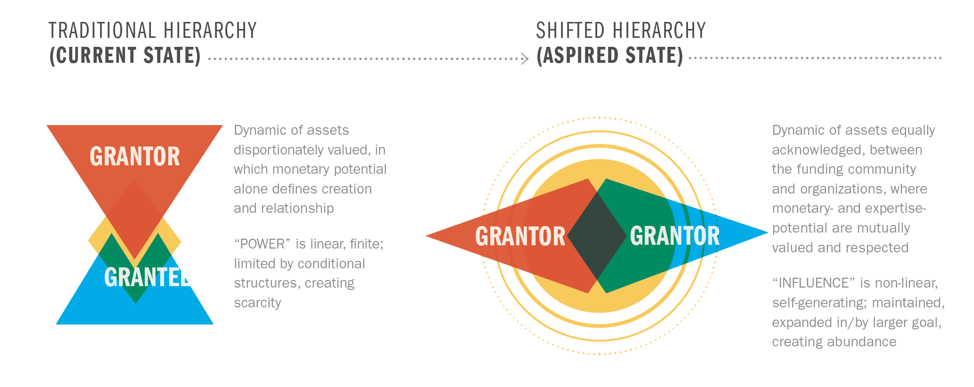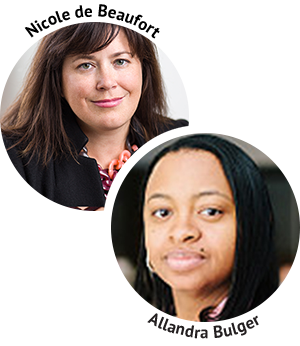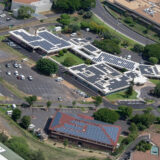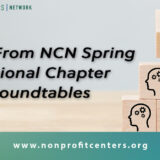Cultivating collaborative action through people and place
We are excited that today’s blog author will be featured as one of 8 presentations at this year’s Sharing Innovation 2019. Like what you read? Register today at www.nonprofitcenters.org/sharing
In the context of increased community need and funding constraints, organizations often feel stuck when it comes to collaboration. Sector dynamics often pit organizations against each other competing for funding, external awareness, and the vocal community ambassadors that can give voice to their respective issue. And, the ever-changing nonprofit landscape is a constant journey, and one in which individual organizations often travel alone. Many of Southeast Michigan’s most pressing challenges and opportunities are connected and realizing impact requires a collective approach, a diversity of perspectives and ideas, and coordination across efforts. The status quo needs to be flipped to one that moves away from organizations chasing dollars to one that would stimulate community-level problem solving and collaborative action.

In 2016, the Ralph C. Wilson, Jr. Foundation envisioned a place-based strategy where natural opportunities for organizations to connect were paired with learning and skill-building. After exploring a number of national models that activated space for collaborative action, the Foundation applied learnings to Southeastern Michigan’s local context and partnered with TechTown Detroit and Michigan Nonprofit Association to develop and launch the concept.
Setting the stage for collective impact
“The underlying goal is to create a more resilient and connected nonprofit community in the region…Being able to learn from one another brings opportunities.” – Allandra Bulger, Executive Director, Co.act Detroit
Co.act Detroit is a hub for accelerating collaborative action in Southeast Michigan’s nonprofit community. Co.act works with organizations to address challenges and untapped opportunities in the sector and region. Co.act works with organizations and partners to bridge the gap between vision and community transformation. The space serves as a place for nonprofits to connect, share ideas, and develop solutions together. Co.act strives to build authentic community through cultivated conversations and events designed to build trust, deepen relationships, and set the stage for collective impact. Co.act sources local wisdom to co-create programs and resources that meet nonprofits where they are. Co.act occupies a restored 6,500-square-foot storefront space on the first floor of the Ralph C. Wilson Jr. Foundation building on Woodward Avenue near East Grand Boulevard.
Laying the foundation for a culture of trust
“Could it be someone’s job to ensure that the resources and even how the organization is marketed is in line with an equity lens?” – Engagement Participant
EarlyWorks surfaced meaning and purpose for this first-of-its-kind collaborative–developing an identity, brand strategy, positioning, and a permanent name. EarlyWorks’ mission was to support a process to develop an identity–and lay the groundwork for–a place that feels welcoming for all organizations, where nonprofits and funders are authentic partners who learn, fail, and transform together. Critical to fulfilling this mission was engaging with the community Co.act was designed to serve. Input from nearly 100 leaders representing nonprofit organizations in the summer of 2018 inspired the foundational elements of Co.act Detroit. Contributing stakeholders included:
- Nonprofit organization leaders
- Foundation representatives
- Intermediary leaders
- University staff
- Mayor’s office representatives
Two major opportunities emerged from this engagement: the potential to change culture and the opportunity to build trust. Culture change can result from productive, honest relationships between organizations and funders that allow for discussion about failure and lessons learned. Similarly, trust as a central tenant is cultivated among organizations and between nonprofits, staff and the larger funding community.
“It should be a safe place to take risks without fear of implications.” – Engagement participant
Engagement participants imagined an organizational ethos that combined access, transformation, and ideas. They envisioned a space that was inclusive and welcoming; that didn’t require a formal invitation to spend an afternoon connecting and sharing ideas with colleagues. They sought sustained transformation, rather than a series of transactions. They hoped for a nimble organization, open to risks, new ideas, and unconventional approaches that drive social change.
“Think friends sitting around a fireplace in someone’s home.” – Engagement Participant
Participants also shared input on desired programming. They prioritized peer learning, chance collisions, responsive program design, and self care. They wanted Co.act to become a space to collaborate and a neutral place to convene with other leaders that translate into powerful partnerships or ideas. Programs should include organizations and respond to local needs, for example, providing self-care–recognizing the tireless nature of working in the nonprofit sector.
Language is critically important in describing Co.act’s work.
Communities asked that asset-based language be used to describe the nature of the relationship with nonprofit organizations. For example use of the word “support” felt to some as though it implied that organizations were being viewed through a “less than” or ill-equipped lens rather than from the perspective that there was ample opportunity to bolster the community wisdom and assets that exist and build upon them.
Other words such as “innovation” were also triggers for community leaders who felt that some
organizations needed services to strengthen basic skills or resources to support thriving organizations who simply needed to “keep the lights on.” Use of the word innovation exclusively to talk about Co.act’s purpose felt exclusionary. Likewise, capacity-building felt like “white noise” to many participants who believe the term means many things to many people and would thus cause confusion.
Translating what we heard
“The best compliment in our work is when someone says, “I really felt heard. I felt heard and represented.” – Nicole de Beaufort, EarlyWorks
EarlyWorks sourced themes to develop three naming constructs:
- Drive/Propel
- Rise Up
- Stronger Together/Collaboration
These three themes were further focused into the concept of collective and collaborative action, or coaction. Adding a period between the “co” and the “act” punctuated the core focus of collaborative action. The tagline, “Accelerating collaborative action in Southeastern Michigan’s nonprofit community” also reflects these constructs.
Development of the logo, tagline, and the organization’s overall brand highlighted four key concepts, which articulate the personality of Co.act Detroit and was again informed by leaders who participated in 2018 engagement sessions.
The resulting brand tonality was meant to convey:
- Collaboration and action
- Effecting change
- Creating a ripple effect
- Professionalism and accessibility
The brand’s values guide how Co.act communicates:
- Transparency/trust
- Equity, access, and inclusion
- Quality/excellence
- Collaborative learning culture
- Disruption of the status quo
Co.act’s services and programs are designed with nonprofit leaders to fill existing service gaps and complement what already exists. Co.act provides customizable programming to meet organizations where they are.Co.act’s networks and activation of its space cultivates a resilient, connected nonprofit community.
Co.act serves nonprofits and the organizations in Southeast Michigan that work with them.
- Leaders looking for thought-partners to solve a problem or generate an idea.
- Researchers, evaluators, or data gurus that have learnings or information with application across the nonprofit sector and are seeking to share.
- Organizations looking to scale, interested in telling their story more effectively, or hoping to improve their fundraising prowess.
- Networks of organizations or groups of cross-sector partners working collaboratively to tackle issues or align efforts.
Often we hear objections from organizations about conducting community engagement taking too much time. Organizations worry about the impact of that additional time on their overall project timeline. We’ve found that the overall “delay” is minimal when compared to projects that advanced without engagement and were delayed–often repeatedly–for missing their intended mark. “Slow” progress is really powerful.
Prioritize space + time for shared learning and visioning among key partners
Collective impact does not happen by accident. It requires care, feeding and intentional collaboration among key partners. In cities and regions that don’t have a comparable space, we recommend advocating for, or developing regular opportunities for partners to come together, share learnings, and align approaches to deepen impact.
Timeline
2016 Ralph C. Wilson, Jr. Foundation begins extensive research and outreach to better understand gaps and needs among nonprofits in Southeast Michigan
Winter 2017 Ralph C. Wilson, Jr. Foundation grants partners (TechTown Detroit, Michigan Nonprofit Association)
Spring 2018 Executive Director, Allandra Bulger, hired
Spring/Summer 2018 EarlyWorks conducts community engagement
Fall 2018 Construction completed, brand identity developed and activated
Spring 2019 Initial programs offered (New, MCR, Data Driven Detroit, UM)
Summer 2019 Community launch
Summer 2019 $1.5M Activate Fund launched to be administered by Co.act Detroit







